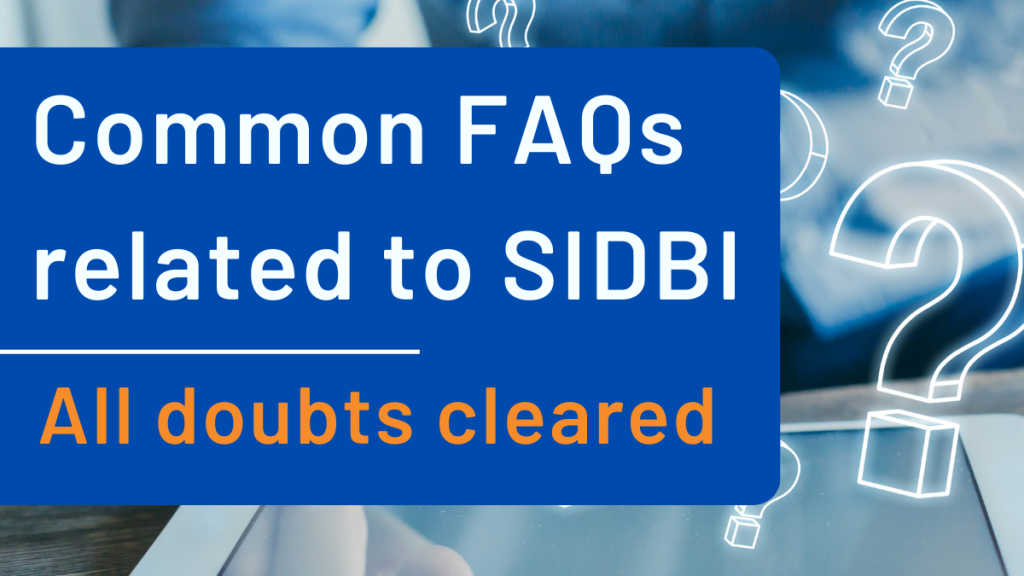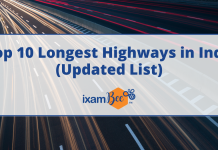The Small Industries Development Bank of India (SIDBI), a pivotal development financial institution headquartered in Lucknow, envisions providing refinance facilities and short-term lending to Micro, Small, and Medium Enterprises (MSMEs). The ongoing SIDBI Manager and Assistant Manager recruitment offers a window of opportunity, with the online application phase open till August 18, 2025.
While SIDBI did not have the traditional online exam in 2023, that was not the case in 2024 and this year with actual exams being held for Grade A last year. This year, the recruitment is for both Grade A and Grade B and this year’s notification clears all doubts in this regard.
Embarking on a career as a SIDBI Grade A and Grade B employee is a journey laden with opportunities and empowerment, yet the path to attaining this role demands meticulous preparation. To navigate this challenge successfully, a strategic approach is essential before delving into the rigors of the SIDBI Grade A and Grade B Exam. While numerous online study resources are available, the prospect of personalized guidance from seasoned experts, well-versed in mentoring aspirants for government competitive exams, is truly invaluable. This one-on-one assistance ensures comprehensive coverage of some basic guidelines and Frequently Asked Questions for candidates. It can help as a confidence booster for candidates hoping to take the exam.

Essential Guidelines for the SIDBI Grade A and Grade B Exam
Navigating the SIDBI Grade A and Grade B 2025 Exam successfully requires technical expertise and a strategic plan to help clear the exam and avoid common pitfalls. This comprehensive guide covers aspects such as preparation and planning for the exam. We also recommend you try ixambee’s SIDBI Grade A/B Online Course to aid you in your preparation.
- Understand the Exam Pattern Thoroughly: Before beginning preparation, it’s vital to familiarize yourself with the SIDBI syllabus & exam pattern for both Grade A and Grade B posts. The process involves three stages—Phase I (Prelims), Phase II (Mains), and Phase III (Interview). Phase I tests Quantitative Aptitude, Reasoning, English, and General Awareness, while Phase II includes professional knowledge and descriptive papers. For specialized streams, technical knowledge plays a key role. Understanding the structure, marking scheme, negative marking rules, and time allocation helps in crafting a smart preparation plan that maximizes strengths while addressing weak areas.
- Master the Core Subjects and Professional Knowledge: Apart from general aptitude sections like Quantitative Aptitude, Reasoning Ability, and English Language, aspirants must focus heavily on professional knowledge related to their stream—IT, Finance, Law, or any other. For IT roles, this could include programming concepts, databases, networking, and cybersecurity. For Finance, it could involve accounting standards, financial management, and RBI guidelines. Strengthening these core areas ensures that candidates perform well in Phase II, where stream-specific expertise can significantly influence overall scores and ultimately, selection chances.
- Keep Updated with Current Affairs and Financial Awareness: For SIDBI exams, General Awareness is not limited to static GK—it demands up-to-date knowledge of economic trends, government schemes, RBI policies, and banking reforms. Reading ixamBee’s BeePedia, daily newspapers, monthly current affairs compilations, and economic survey summaries is essential. Candidates should also track topics like MSME sector developments, financial inclusion initiatives, and global economic changes. This knowledge not only boosts performance in objective questions but also provides valuable points for descriptive answers and interview discussions, where awareness of the latest financial developments is crucial.
- Practice Time Management and Mock Tests Regularly: Time management can be the deciding factor in the SIDBI exam. Candidates must practice through full-length mock tests to simulate exam conditions and refine their speed and accuracy. Analyzing mock test performance helps identify weak areas and rectify them well in advance. It’s equally important to practice sectional time allocation, especially in Phase I, where every second counts. For Phase II descriptive sections, writing practice within time limits enhances clarity, structure, and expression—skills that can help secure higher marks in subjective evaluations.
- Industry Awareness is Key: Familiarity with the broader financial industry, economic trends, and SIDBI’s specific functions is crucial. Neglecting industry awareness may lead to responses lacking depth and relevance, signaling to the interviewers that the candidate must thoroughly research and understand the organization and its operating environment.
- Prepare Strategically for the Interview Stage: The interview is a crucial stage that can determine final selection, especially in a competitive recruitment like SIDBI Grade A/B. Candidates should be well-versed with their academic background, work experience, and stream-specific knowledge. Reviewing recent SIDBI initiatives, MSME policies, and economic developments can help answer domain-related questions confidently. Soft skills such as communication, body language, and logical thinking are also assessed. Conducting mock interviews, preparing concise yet impactful self-introductions, and practicing situational questions can significantly boost performance in the final round.
SIDBI Grade A and Grade B Preparation: Some Frequently Asked Questions
Embarking on the journey to prepare for the SIDBI Grade A and Grade B exam often comes with many questions for aspirants seeking guidance. In this FAQ guide, we address common queries related to SIDBI Grade A and Grade B preparation, offering insightful responses to aid candidates in their pursuit of success. Now, let’s delve into the frequently asked questions to provide comprehensive guidance for prospective SIDBI Grade A officers.
Q 1. I have been working in the BPR branch of SBI for the past 3 years as an officer. I used to forward the loans to the SME department. Am I eligible for the SIDBI Recruitment?
Ans: Yes, you are eligible for the SIDBI Grade A/B Recruitment. Officers at the branch level are anticipated to possess knowledge of credit-related processes. Even if unfamiliar with lending procedures initially, eligible candidates can acquire the necessary understanding through dedicated reading and learning initiatives.
Q 2. I have been working as a probationary officer in a public sector bank for the past 2 years. Does this experience count towards the required work experience for SIDBI Assistant Manager Grade ‘A’ or Manager Grade B position?
Ans: Yes, you are eligible. Relevant experience in a public sector bank, particularly in the domain of MSME lending, is acknowledged as valuable for applicants. If you have served as a probationary officer, your experience in navigating financial processes and dealing with MSME-related matters may significantly contribute to meeting the eligibility criteria for the SIDBI Grade A or Grade B position, enhancing your suitability for the role.
Q 3. I have a background in IT and have been working as a software developer in a financial institution for the last 3 years. Can I apply for the SIDBI Assistant Manager Grade ‘A or Grade B’ position?
Ans: Yes, you can apply for the SIDBI Assistant Manager Grade ‘A’ or Grade ‘B’ position if you meet the eligibility criteria mentioned in the official notification. Your IT background and three years of experience as a software developer in a financial institution can be an added advantage, especially if the recruitment includes streams like Information Technology. However, eligibility also depends on educational qualifications, age limits, and other requirements specified by SIDBI. Carefully review the latest notification to confirm your eligibility before applying.
Q 4. I am currently working as a credit analyst in a private bank. Does this experience fulfil the work experience requirement for SIDBI Assistant Manager Grade ‘A’ position?
Ans: Certainly, experience in roles associated with credit analysis within a bank, especially if held in an office cadre, is deemed pertinent for the Assistant Manager Grade ‘A’ position at SIDBI. Such firsthand exposure demonstrates a candidate’s proficiency in assessing creditworthiness, a critical aspect of the role. Candidates with this specific experience are likely to find their skills aligned with the responsibilities of the Assistant Manager position, enhancing their eligibility for the role.
Q 5. I have cleared JAIIB/CAIIB. Will I get any advantage in SIDBI?
Ans: Indeed, as per the prevailing guidelines of SIDBI, candidates who have successfully qualified JAIIB/CAIIB before joining the institution are eligible to be considered for the grant of one or two advance increments in the pay scale. This privilege is contingent upon the submission of documentary evidence, satisfying SIDBI’s criteria for such advancements in pay.
Q 6. I am a current SIDBI employee. Will I get any relaxation if I apply for Grade A or Grade B?
Ans: Yes, Staff candidates (only permanent / regular employees of SIDBI) shall also be eligible to apply for the advertised post subject to their fulfilling the eligibility criteria, for which they may be given relaxation in age by 5 years and waiver from payment of application fee as applicable in General Recruitment. The age relaxation of 5 years shall be over and above the age relaxation already provided to their respective category i.e., SC / ST / OBC / PwBD.
Q 7. I am a Gold Loan Officer in Muthoot Finance. Am I eligible?
Ans: Certainly, candidates are expected to possess knowledge of MSME-related lending for the SIDBI Grade A position. A thorough understanding of the intricacies involved in lending to Micro, Small, and Medium Enterprises is crucial for successfully fulfilling the responsibilities associated with the role.
Q 8. What is the approximate starting salary of a SIDBI officer?
Ans: The approximate starting salary of a SIDBI Grade ‘A’ Assistant Manager is around ₹90,000 per month, including basic pay, Dearness Allowance (DA), House Rent Allowance (HRA), Local Compensatory Allowance, and other perks. The basic pay is structured according to the 11th Bipartite Settlement, and allowances vary depending on the posting location.
For Grade ‘B’ officers, the salary is higher due to a higher pay scale, often exceeding ₹1 lakh per month with allowances. In addition to the SIDBI salary, SIDBI officers enjoy benefits like medical facilities, leave travel concession, pension, and performance-linked incentives, making the total compensation package quite attractive.
Q 9. What is the approximate number of branches of SIDBI in India?
Ans: SIDBI, the Small Industries Development Bank of India, has established a nationwide network of approximately 33 branches. These branches are strategically positioned, exclusively situated in cities across India. This geographical distribution ensures that SIDBI’s presence is prominent in key urban centers, facilitating effective engagement and support for developing Micro, Small, and Medium Enterprises (MSMEs) in these vital economic hubs. The city-centric placement of offices aligns with SIDBI’s mission to foster financial inclusion and economic growth in urban areas.
Q 10. What is the probability of getting posted near my home?
Ans: Securing a high rank in the merit list significantly increases the likelihood of obtaining a posting of your preference, often near your home. The allocation of postings is primarily determined by individual performance marks, emphasizing the importance of achieving a commendable ranking in the examination.
Q.11 Is there any probation period in SIDBI?
Ans: Indeed, upon selection, candidates undergo a probationary period lasting two years, and at the discretion of SIDBI, this period may be extended up to a maximum of four years. During this probationary phase, individuals are evaluated for their performance and adherence to organizational standards. The extension of the probationary period is contingent upon SIDBI’s assessment of the candidate’s suitability for the Assistant Manager Grade ‘A’ position.
Q.12: I have been working as a relationship manager overseeing deposits in Kotak Mahindra Bank. Am I eligible?
Ans: Individuals with at least 2 years of experience as officers in private banks are eligible to apply for the Assistant Manager Grade ‘A’ position at SIDBI. This experience requirement underscores the importance of prior banking expertise in private institutions as a qualifying factor for consideration in the recruitment process.
Q.13: What topics must I learn for the SIDBI Grade A and Grade B recruitment process?
Ans: For the SIDBI Grade A and Grade B recruitment process, the syllabus generally covers a mix of Quantitative Aptitude, Reasoning Ability, English Language, and General Awareness, with a strong focus on Banking and Financial Awareness. Candidates must also prepare for topics related to the economy, current affairs, and government schemes.
In addition, there is often a Professional Knowledge section tailored to the stream applied for, such as Information Technology, Law, or Finance. For IT roles, topics like programming, databases, networking, cybersecurity, and emerging technologies are important. Always refer to the latest official notification for the exact syllabus.
Q.14: Has the recruitment process for SIDBI has changed?
Ans: As per the latest 2025 notification, the SIDBI Grade A and Grade B recruitment process has not undergone any major structural changes. It continues to follow the three-stage selection process — Phase I (Preliminary exam), Phase II (Main exam), and Phase III (Interview). Phase I is an online objective test covering general aptitude and awareness, while Phase II includes stream-specific objective and descriptive sections. The final stage, the Interview, may also include a psychometric assessment or personality evaluation in some cases.
The exam pattern, marking scheme, and evaluation criteria remain broadly similar to previous recruitment cycles. Candidates applying for specialized streams such as IT, Law, or Finance will still face professional knowledge sections tailored to their field in Phase II. Since the overall structure remains unchanged, previous year question papers and preparation strategies from earlier years continue to be highly relevant for the 2025 recruitment process.
At ixamBee, we specialize in providing comprehensive online courses for government exams and online courses for government jobs. Our expertly designed courses for government jobs cater to a wide range of upcoming government exams. Whether you’re preparing for specific courses for government exams or seeking general guidance, ixamBee offers the resources like Beepedia previous year papers, SSC CGL, SSC CHSL, SSC MTS and other mock tests to succeed in exams like RBI Grade B, SEBI Grade A, NABARD Grade A, RRB NTPC, SSC MTS, NIACL Assistant, and more.
ALSO READ
Full Form of SIDBI with All Details
Highest Paying Government Jobs in India
Mistakes to Avoid During SIDBI Grade A Interview














